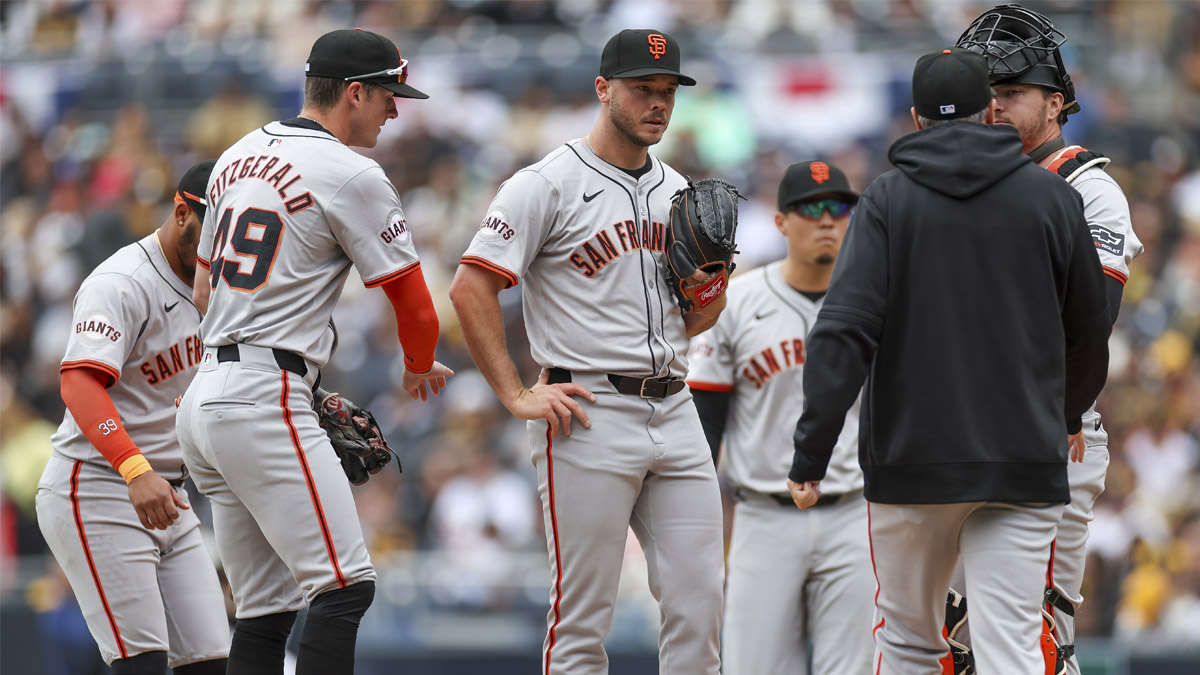With spring training starting, it's only natural for former MLB players to wax-poetic about their playing days.
That's fine. Reminisce. Tell stories. Show off those old battle scars.
Just don't take it too far -- like Aubrey Huff did on Twitter on Wednesday.
Stay in the game with the latest updates on your beloved Bay Area and California sports teams! Sign up here for our All Access Daily newsletter.
The former Giant has gotten himself into some hot water on the social network in the past, and while this was certainly a different situation, his decision to place himself in direct comparison to new Padres third baseman Manny Machado was ... ill-conceived.
Machado dominated the sports headlines after reportedly agreeing to a 10-year, $300 million contract with the Padres on Tuesday morning. One day later, Huff couldn't resist:
Look, we get it. That's a lot of money. Machado's reported contract would be the second largest in the history of baseball.
But, really Aubrey? You want to go there?
San Francisco Giants
Say what you want about how Machado isn't worth $300 million, and you might have a point. But the idea that he and Huff having a few similar hitting stats over their first seven seasons is somehow indicative of them being similar talents is downright laughable.
Laughable, like if you pulled a thong out of ... nevermind.
It's due to comparisons such as the one Huff made that the world of baseball analytics even got started. When limiting ourselves to just home runs, RBIs, and other base hitting stats, we don't get the whole picture. This isn't breaking news.
So, what do the more advanced statistics indicate when comparing Huff and Machado's first seven seasons -- the ones that factor in the totality of a player's value?
Let's introduce you to the concept of WAR, Aubrey. Clearly, you haven't been paying enough attention to baseball since you walked off not-so-quietly into the night.
WAR, or 'Wins Above Replacement' is an attempt to summarize a player's total contributions to their team in one statistic. It's not the end-all, be-all stat, but generally, it gives you a good idea of who was good, who wasn't and to what degree, relative to the average replacement player that season.
As you'll see, when it comes to WAR, there isn't even a comparison:
Due to Machado's contributions in many of the non-hitting areas of the game -- such as fielding, baserunning, etc. -- the newest Padre was worth almost three times as many wins above replacement as Huff over their first seven seasons.
In fact, given that their base hitting stats were similar, a comparison of their dWAR -- Defensive Wins Above Replacement -- shows just how dissimilar Huff and Machado were in that facet of the game.
Over his first seven seasons, Huff posted a cumulative dWAR of -6.0; that's to say that his team would have accumulated six more wins with the average replacement player in Huff's place. Over Machado's first seven seasons, he posted a cumulative dWAR of 11.3.
In fact, in all of Huff's 13 MLB seasons, he never posted a positive dWAR. Machado has never posted a negative dWAR up to this point in his career.
[RELATED: Giants react to Machado's reported agreement with Padres]
Machado has appeared in 926 career games, playing either third base or shortstop -- arguably the two premier defensive positions -- in every single one. Huff played nearly half of his games over his first seven seasons -- 48.6 percent -- at DH or one of the corner outfield spots.
Any way you look at it -- well, other than the way Huff did -- Machado has been a far superior player over his first seven seasons in the league. And, based on his track record and age, there's hardly reason to expect Machado's production to fall off drastically after leaving the bandbox that has been the AL East.
Huff was right about one thing.
This was a fun comparison for at least one MLB fan.


